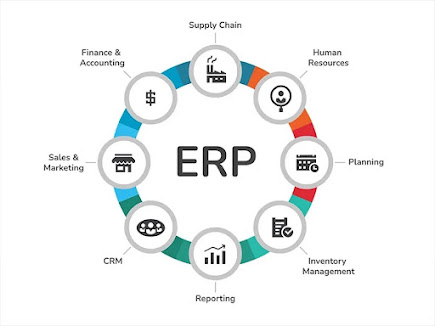ERP (Enterprise Resource Planning) is a powerful software tool that is designed to help businesses manage their various functions more effectively.
One of the key areas in which ERP can be particularly helpful is accounting. In this blog post, we'll explore the benefits of using ERP in accounting, and answer some frequently asked questions about ERP for businesses in Kuwait.
Benefits of ERP in Accounting
Enhanced efficiency
ERP systems automate many manual processes, reducing the risk of errors and increasing the efficiency of your accounting processes. By automating tasks such as data entry and reconciliations, your team can focus on more important tasks, such as analyzing data and making strategic decisions.
Improved accuracy
With ERP, you can ensure that all financial data is entered and recorded accurately. This reduces the likelihood of errors and inconsistencies, which can be costly to fix. ERP also helps to ensure that data is updated in real-time, giving you a clear picture of your company's financial health at any given time.
Better financial reporting
ERP systems provide detailed financial reports that allow you to monitor your business's financial performance in real-time. This information can be used to identify trends and make informed decisions about the future direction of your business.
Increased visibility
ERP systems provide a centralized view of your company's financial data, making it easier to identify and track key performance indicators. This visibility helps you to make informed decisions and respond quickly to changes in the business environment.
Cost savings
By automating many manual processes, ERP systems can help to reduce costs associated with accounting, such as staffing and training. In addition, by providing a more accurate and timely view of your financial data, ERP systems can help to reduce the risk of costly errors and fraud.
FAQs about ERP in Accounting for Kuwaiti Businesses
Q: What types of businesses can benefit from using ERP in accounting?
A: Any business that has complex accounting processes can benefit from using ERP. This includes businesses with multiple locations, complex supply chains, or high transaction volumes.
Q: What are some of the key features of an ERP system for accounting?
A: Some key features of ERP systems for accounting include accounts payable and receivable, general ledger, financial reporting, and tax management.
Q: How long does it take to implement an ERP system for accounting?
A: The length of time it takes to implement an ERP system for accounting depends on the complexity of your business and the specific features of the ERP system you choose. However, most implementations take several months to a year.
Q: How much does an ERP system for accounting cost?
A: The cost of an ERP system for accounting varies depending on the features you need and the size of your business. However, ERP systems can be expensive, so it's important to carefully evaluate the costs and benefits before making a decision.
Q: What are some of the potential challenges of implementing an ERP system for accounting?
A: Some potential challenges include data migration issues, the need for employee training, and the potential for disruption to existing processes during the implementation process.
Conclusion
ERP systems can provide significant benefits for businesses in Kuwait looking to improve their accounting processes. By enhancing efficiency, accuracy, and visibility, businesses can make informed decisions and respond quickly to changes in the business environment. While there may be challenges associated with implementing an ERP system, the benefits often outweigh the costs.


Comments
Post a Comment